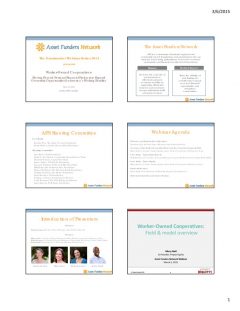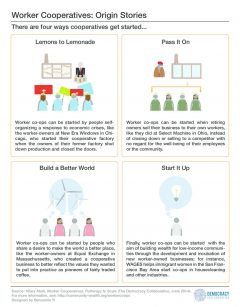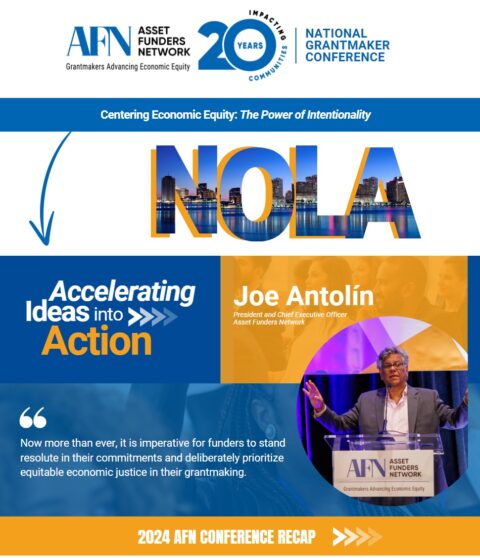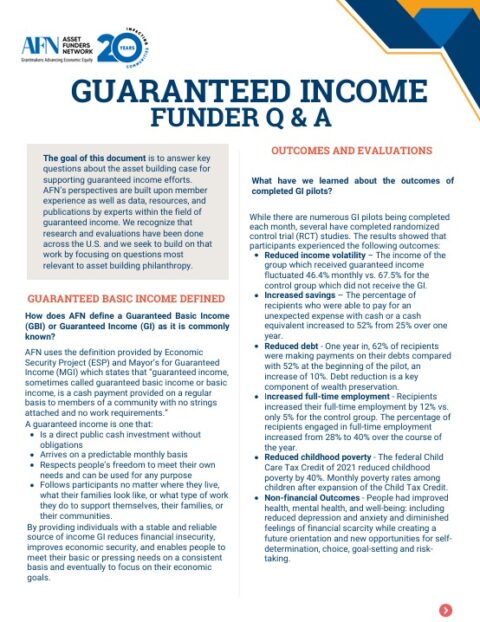Listen to the webinar:
In today’s economy, holding down a job is not enough to get out of poverty, and savings and micro-enterprise programs cannot always bridge the gap. Worker-owned cooperatives represent a new iteration of asset-building strategies that can move low income families, including communities of color that are hardest hit by wage and wealth gaps, toward financial security. Worker ownership combines quality job creation with shared entrepreneurship opportunities to enable low-wage workers to increase their skills, income, and assets.
The materials here, including a webinar with Hilary Abell, Co-founder of Project Equity and author, Worker Cooperatives: Pathways to Scale; Molly Hemstreet, Co-founder & General Manager of Opportunity Threads; Caroline Textile District; and Bobby Smith, Senior Associate of Fellowship Programs, Echoing Green, explore this topic in depth.
Worker Cooperatives: Pathways to Scale, is a more in-depth brief about the field and model overview of worker cooperatives reviewed in the webinar presentation. Additional material mentioned in the presentation includes the infographic, exploring the origin of Worker Cooperatives.
Two more major case studies and important resources include:
Project Equity, which works on multiple pathways to expanding worker ownership in the San Francisco Bay Area, including incubating and converting businesses, and Opportunity Threads, a worker-owned cut-and-sew factory, leading efforts to revitalize North Carolina’s textile industry.
More resources include the specific case studies mentioned in the webinar presentation: the Carolina Textile District, and Opportunity Threads.





